Portable device instantly measures meat quality for a variety of proteins
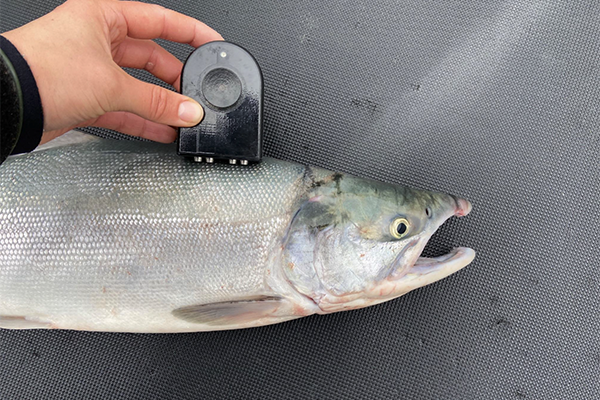
Salmon processors in Bristol Bay, Alaska, are using a bioelectrical impedance analysis device to measure the quality of their catch as part of a wider commitment to improving product quality.
The Bristol Bay Regional Seafood Association (BBRSDA) is partnering with CQ Foods to reduce shrink and increase the value of seafood for fishermen and the industry’s supply chain. Bristol Bay is home to the largest wild salmon fishery in the world.
CQ Foods’ CQR 3.0 can instantly measure meat quality for a variety of proteins, like chicken and fish. The Alaska Department of Fish & Game projects landings greater than 36 million sockeye salmon this season, which runs from mid-June through mid-August.
Salmon fishermen and processors will be able to use the resulting product-quality data to refine harvest and handling practices. The CQR 3.0 also provides an alternative method for paying out “chilling bonuses.” Most Bristol Bay processors pay extra for chilled fish below a certain temperature, but fishermen often must wait until freshly caught fish reaches the proper temperature to qualify for the bonus.
This means wasting time during a short, intense season where many boats will fish over 18 hours per day for three weeks. The additional time helps harvesters’ bottom line and improves safety.
“This is another exciting evolution for the Bristol Bay salmon fishery,” said BBRSDA Executive Director Andy Wink. “This fishery often provides over half of the world’s supply of sockeye salmon, and the CQR holds outstanding potential as a way to further improve fish quality measurements. Bristol Bay is blessed to have an abundant surplus of wild salmon that can be enjoyed across the world, but it’s up to us to make sure we’re maximizing the freshness of each wild salmon. The fishery has made tremendous improvements over the past 20 years, as it transitions away from a model where most fish was canned to one where most fish are eventually sold as fresh or frozen fillets but we see this as an opportunity to make the critical quality monitoring processes more efficient and improve overall pack quality.”
CQ Foods co-founder and Chief Scientific Officer Keith Cox said Bristol Bay provides the ultimate challenge for this technology.
“This is a very remote fishery with high volume. Our devices have to perform reliably in a wet environment, often with rough seas. They also have to be able to function offline, as the internet is usually unreliable or not available. All of the challenges presented by Bristol Bay were factored into creating the new 3.0 version of the CQR device and analysis platform, all while reducing production costs.”
Follow the Advocate on Twitter @GSA_Advocate
Now that you've reached the end of the article ...
… please consider supporting GSA’s mission to advance responsible seafood practices through education, advocacy and third-party assurances. The Advocate aims to document the evolution of responsible seafood practices and share the expansive knowledge of our vast network of contributors.
By becoming a Global Seafood Alliance member, you’re ensuring that all of the pre-competitive work we do through member benefits, resources and events can continue. Individual membership costs just $50 a year.
Not a GSA member? Join us.
Author
Tagged With
Related Posts
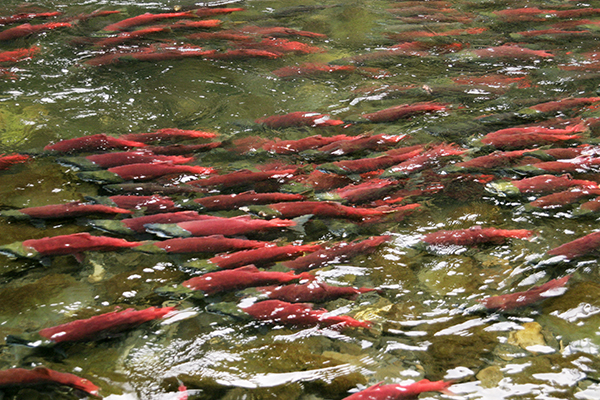
Fisheries
EPA bans Pebble Mine project to protect ‘valuable’ wild salmon fisheries in Alaska’s Bristol Bay
The EPA says it will protect Bristol Bay in Alaska – home to one of the world’s most valuable wild salmon fisheries – by vetoing the Pebble Mine project.
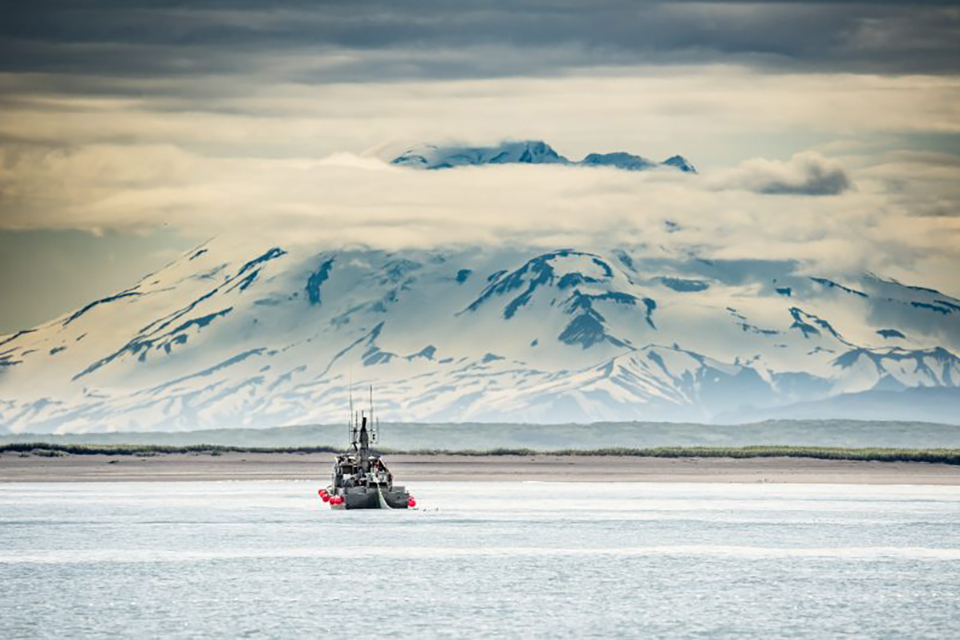
Fisheries
Even with Pebble Mine dead in the water, mining-fishing collisions may be inevitable
Mining can degrade water quality and impact fisheries, but some consider the Pebble Mine in Alaska as necessary for the metals for green tech.
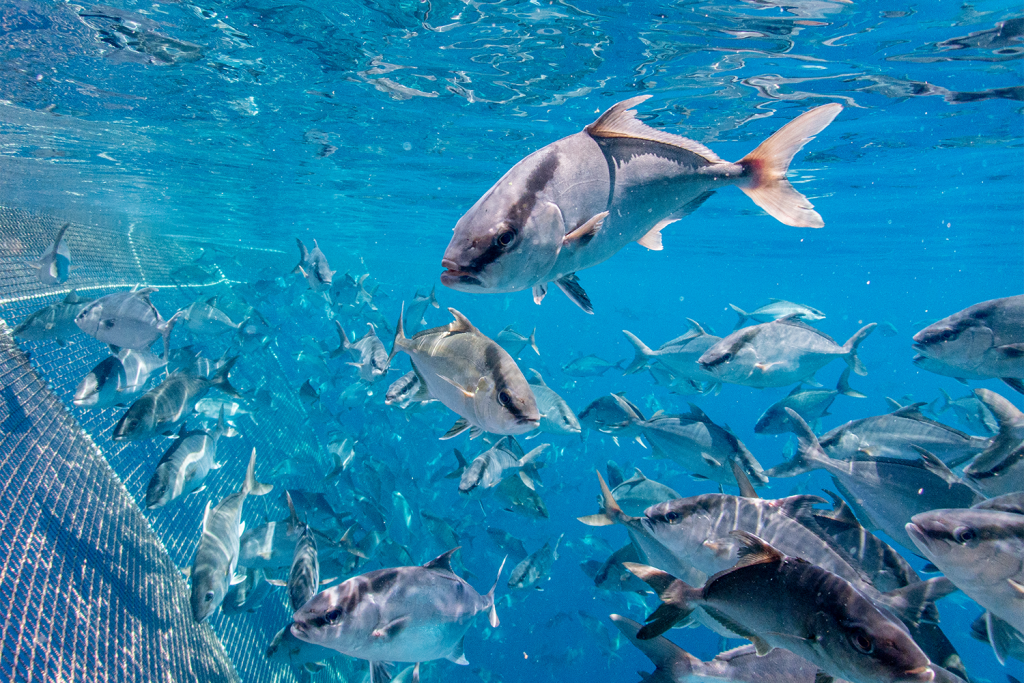
Innovation & Investment
‘Almost as if they’re wild’ – Offshore aquaculture startup Forever Oceans is gaining confidence farming in deep water
With patented modular fish enclosures, sensors and software, Forever Oceans uses offshore aquaculture to raise Kanpachi fish, with bold expansion plans ahead.
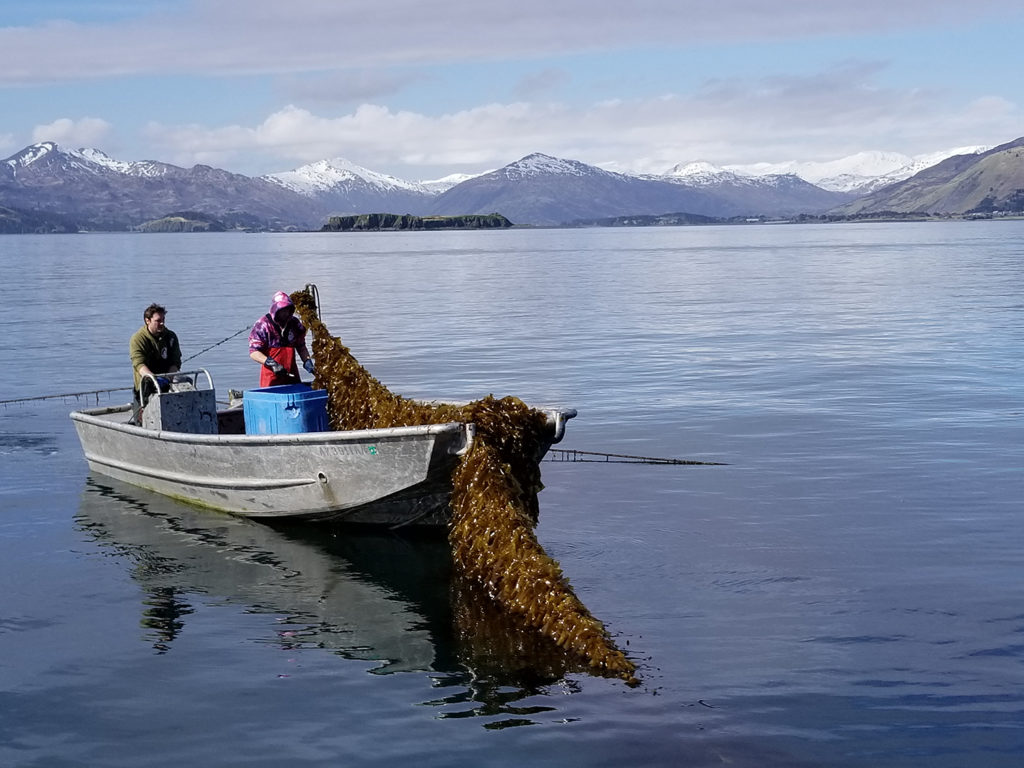
Responsibility
With entrenched aquaculture views, Alaska weighs its future in farming
The word aquaculture is a dirty one in Alaska, where finfish farming is firmly prohibited. But if your farm fits a certain description, permits to proceed can indeed be obtained.



